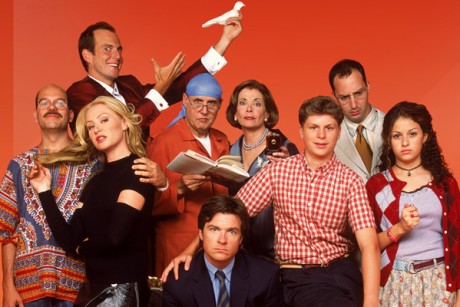So far, there is a lot fans can piece together about what the new season of “Arrested Development,” the cult comedy dropped prematurely by Fox in 2006, will look like: The entire cast will be back, including most of our favorite recurring characters (Liza Minnelli, Scott Baio, Henry Winkler, to name a few) and some new ones (e.g., Conan O’Brien and John Slattery), the whole show will drop at once on Netflix this spring, and each of the 13 or 14 episodes will focus on the life of a different Bluth character.
To the dismay of die-hard fans, show creator Mitch Hurwitz is now saying that the new season will never have the entire Bluth family in every episode. “You don’t see them all together until you see the movie,” he told USA Today, explaining that “Contractually, we couldn’t use all the characters in every episode; they were not free to do as much television as they want.” The show’s central character, Michael Bluth (Jason Bateman), will be the only character to make an appearance in every show.
Hurwitz reiterated that “The show will look very different,” saying that it’s a “very, very complex puzzle.” (And if you are worried the show’s redesign will ruin it, well, you’re not alone.) “The bigger story is the family has fallen apart at the start of our show,” said Hurwitz. “They all went their own way, without Michael holding them together, so they’re left to their own devices, and they’re not the most successful devices.”
So why mess with such a successful format? Hurwitz explains that the decision is part logistics, part creative ambition, noting that Netflix’s video streaming service “flies in the face of everything that’s been going on in television forever,” in that the show can be released all at once. “Part of the experience of waiting for the next episode [forces] the need to create artificial cliffhangers [that] ultimately dilute the storytelling,” said chief content officer Ted Sarandos. “If people watch it all at once, it will seem like a giant ‘Arrested Development.’ It’s really tailored for Netflix.”
The ability to release a show without worrying about viewership gaps also emboldened Hurwitz, who said, “It was a point of pride with me; I wanted to create a show that had surprises. But that’s what they want to do [at Netflix]. They want to take risks. They encouraged the complexity that had been discouraged before.”

